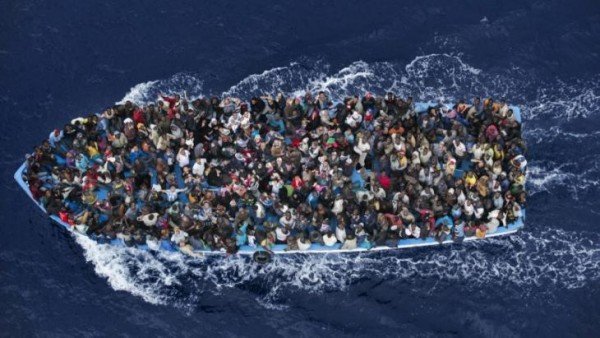According to the European Commission, 3 million refugees are likely to arrive in Europe by 2017 as the record influx via the Mediterranean continues.
The EU’s executive arm said the influx would have a “small but positive” effect on EU economic output, raising GDP by 0.2-0.3%.
The influx will raise the EU population by 0.4%, the Commission forecasts, taking account of failed asylum claims.
The flow of Syrian refugees to Europe shows no sign of abating, the UN says.
The weather in the Aegean Sea has got rougher with the onset of winter.
Conflicts and abuses in Iraq, Afghanistan, Eritrea and Somalia are also pushing people towards Europe.
The flow of refugees and other migrants from Turkey to Greece is expected to continue at a rate of 5,000 daily this winter, the UN refugee agency UNHCR says.
Delivering the EU’s autumn economic forecast, EU Economic Commissioner Pierre Moscovici said extra public spending and the extra labor supply from recognized refugees would lead to a small GDP rise in the EU as a whole.
However, the Commission cautioned that “the uncertainty surrounding the influx thus far and its future development is substantial”.
The Commission said the figure of three million was an assumption rather than a prediction and included those who had already arrived in 2015.
UN refugee officials say more than 750,000 refugees have arrived in the EU by sea this year, up from 282,000 in total in 2014.
The vast majority have arrived in Greece (608,000), which has become the most common destination. Some 140,000 have arrived in Italy in 2015.
Most of the refugees head for Germany, hoping to get asylum there. German officials say their country is likely to host at least 800,000 new refugees this year, and the total could reach 1.5 million.
Sweden has the highest share of refugees per head of population in the EU. The extra cost in public spending is likely to be nearly 0.5% of GDP this year, the Commission says, adding that “the corresponding positive effects on growth would be somewhat smaller”.
https://www.youtube.com/watch?v=yVxZQJeQJzY
